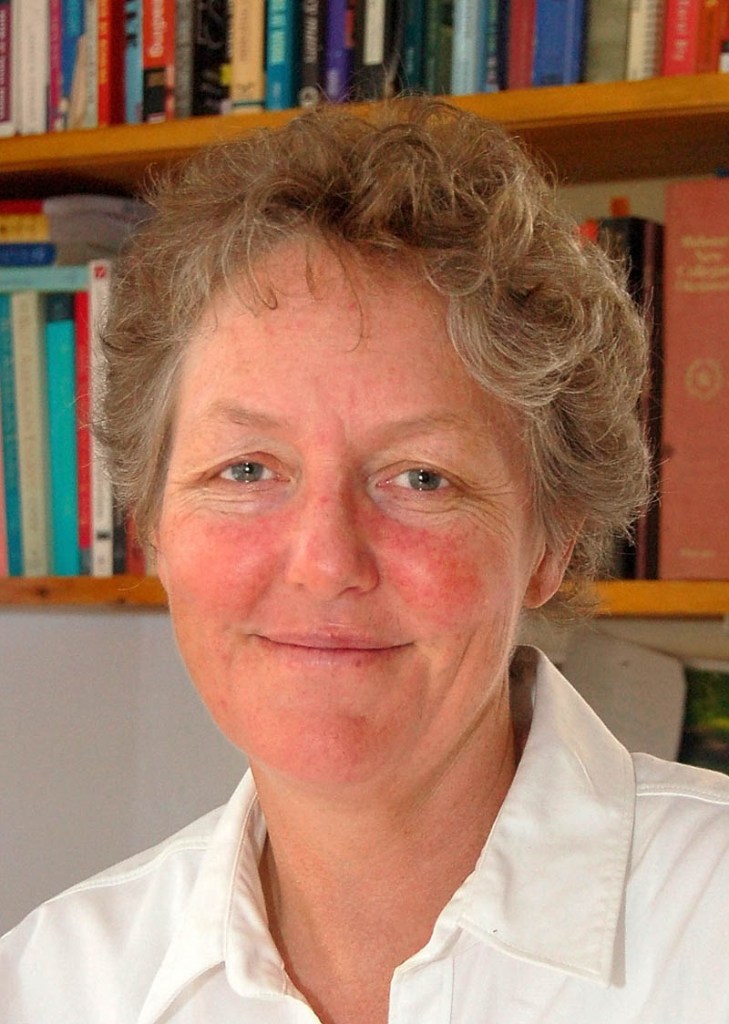FARMINGTON — Can money buy happiness?
Apparently, there are 600,000 of the happiest people on earth who say it can’t.
At least that’s what Maine author and educator Gretchen Legler plans to find out when she travels to the Kingdom of Bhutan, a tiny Buddhist country in the eastern Himalayas where success is measured in happiness instead of material wealth.
“Supposedly it’s the happiest country in the world,” she said.
The 50-year-old, who teaches creative writing at University of Maine at Farmington, will spend the next nine months in this real world Shangri-La, hoping to discover what makes them so happy and bring the answer to the mystery back to America.
“I hope to write about it and make it my newest book. Maybe about what do the happiest people in the world look and act like,” she said.
Legler received a 2011 Fulbright Scholar award to teach and do research at Paro College of Education in western Bhutan. She is one of only two people to ever receive the award to teach and study in the country, according to a release from UMF. The program is primarily funded through the U.S. State Department.
The remote nation, wedged between China and India, has a culture and government that takes a unique approach to success, especially when compared to most Americans’ beliefs.
“In the West we’ve been caught up in this idea that happiness is external to us and we can gain it by buying things, as opposed to the spiritual internal happiness valued in Bhutan,” Legler said.
While the U.S. and other western cultures keep track of gross national product as an economic indicator of success, Bhutan’s government has a policy to track gross national happiness, she said.
Legler wants to learn more about the very different and secretive culture, which has a perspective that could help Americans in these tough economic times who are failing to obtain the American ideal of success.
“This is the burgeoning exploration into what happiness is, and how you achieve it is something that Americans are interested in,” she said.
But Bhutan also has features besides the happiness index that many Western cultures may not agree are so conducive to happiness.
Legler characterized the country’s government as a democratic, parliamentary monarchy, with many regulations that are rooted in the fear of foreign influences. For example, its residents adhere to a national dress code.
The government controls tourism, limiting foreigners to visas tied to guided treks in the Himalayas, cultural tours and other approved visits, Legler said.
“They’re controlling how much of the West gets into their country because, I guess, they think our brand of happiness, which is based on individualism and material possessions, is not the kind of happiness they seek,” she said.
Legler often brings up the contrast to her students at UMF during lectures on the environment and global perspectives.
“Americans have gotten lost in this sea of consumption, not only that buying things is not making us happy but it’s ruining the environment,” she said, paraphrasing an author she has students read.
Legler, who lives in Jay with her partner, Ruth, will take the 14-hour flight Wednesday to India before reaching Bhutan. She has visited India as a tourist, but Legler said last week she is prepared for a lot of surprises and culture shock.
“This is a real adventure,” she said.
David Robinson – 861-9287
drobinson@centralmaine.com
Send questions/comments to the editors.



Comments are no longer available on this story